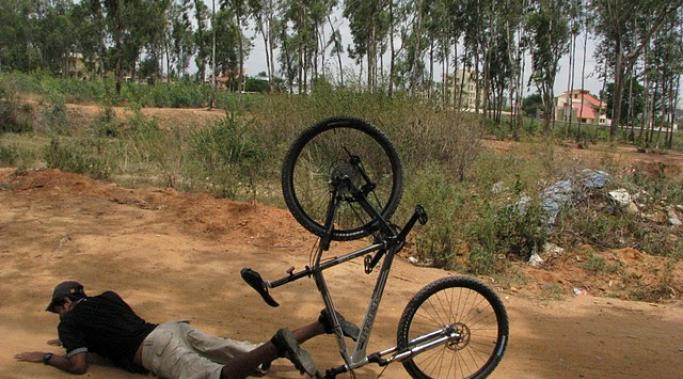Blogs
If you're like me, identifying all the ways your partner contributes to your relationship problems is easy to do. Pointing fingers isn't difficult when they're aimed at someone else. But Dr. Steven Stosny says mending a broken relationship requires compassion, not blame.
When I first sought eating disorders treatment more than two years ago, I was certain I was going to come out of the two-week hospital stay completely free of anorexia. Several of the nurses told me that I would be successful at recovery because I only had had anorexia for about one year and therefore the disease hadn't yet become an integral part of my personality — yet. I walked out of the hospital fully believing all this, but I soon became engulfed in a fog of anorexic thoughts and behaviors within weeks of being discharged.
...and it costs lives
I just read an article in the Sydney Morning Herald which says that,
"THE loss of life deemed attributable to depression has been cut by half in new government statistics after a change to the counting method which a leading expert says forms part of a systematic effort to downplay the mental illness toll." (bold added)
Nice that they can just magically make unpleasant facts go away like that, isn't it? If only the realities of mental health were that simple.
I wrote the series, Diary of a Newly Diagnosed Dissociative, because I know I'm not the only one who has wrestled in turmoil over their Dissociative Identity Disorder diagnosis. I want those who are struggling to know that, within the context of DID, their experiences aren't as unusual as they probably feel. But knowing you're not alone, while helpful, won't ease the struggle too much if there's no end in sight. I can tell you, though, that making peace with this diagnosis is an attainable goal. I did it. These three things are what made it possible.
I was inspired today by Seth Godin’s blog article Lady Gaga and Me. In it, he makes the point that writers needn’t worry about all the people who don’t like them because really, they should only worry about all those who do. I understand this as I’m a writer, and there are people who don’t like my writing; which is OK, because there are many who do.
The same goes for bipolar treatments. Some people are just never going to agree with your chosen bipolar treatment plan no matter what you do.
There are some issues surrounding children with mental illness, their parents, blame and anger, I want to explore. While I'm collecting my thoughts, however, I ask you to consider this, originally posted on my personal blog in July, 2007.
Kindergarten starts August 20, 2007. Bob is registered. He's had his tour of the school. He can't wait. Me? I'm freaking out.
I went on my first diet in 2000. I lost a lot of weight but grew disturbingly obsessed with food and dropping even more weight. I stopped going out, I lost friends, I refused to eat out at restaurants and my weight plummeted to a new low where I lost my period and had to be hospitalized.
Every year when the last leaf falls of the tree and the gusting wind blows her chilly breath, dread develops in my heart. It means that winter is just around the corner. Oh sure, winter has its charms: freshly fallen snow, hot chocolate, and the anticipation or anxiety of the holidays. But what about the daily winter burdens like trying to start your freezing car, the shorter daylight hours, and the strong desire to act like a bear and hibernate? Most winter headaches can be remedied with a positive attitude and a few helpful winter survival tips.
...you don't notice it's there, until you're falling.
That's the experience of mental illness - in a nutshell: You're either flying, or falling. It's hard to stay in one place, difficult to nail down exactly what's wrong because it's such a core thing. So much the experience of the world, rather than the experience of one symptom or other.
My illness may be invisible, but that doesn't mean I have to be. Let me repeat that. Give you time to catch up:
Your illness may be invisible, but you don't have to be.
Why is a group of happy gnomes just as unhealthy as the gnomes who sing "We're happy when we're sad"?







